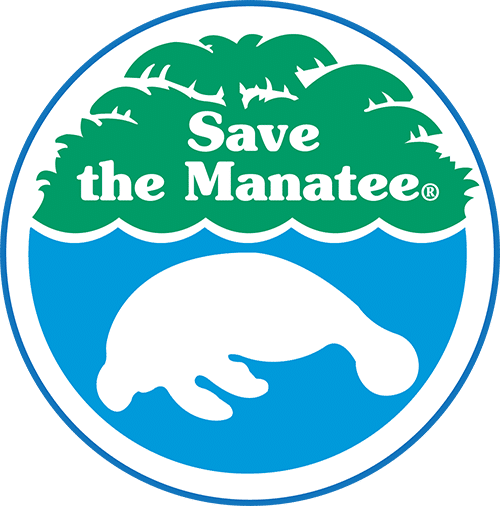Be Fertilizer-Free for Manatees
Nutrient pollution in Florida’s waterways is a critical problem, fueling repeated harmful algal blooms in coastal waters. In the Indian River Lagoon, a critical manatee habitat, such harmful algal blooms have destroyed native seagrass, resulting in the deaths by starvation of hundreds of manatees. In 2023, there were over 550 recorded manatee deaths in Florida, on top of the record number recorded in 2021 of 1,101, followed by 800 recorded manatee deaths in 2022. The situation remains dire because human caused nutrient pollution remains much too high.
Together, we can protect these critical habitats for manatees, other aquatic life, and for our own future generations by reducing human sources of pollution such as fertilizers, improperly-treated sewage, leaking septic systems, and stormwater runoff. While Save the Manatee Club works with our partners to strengthen policies that protect water quality, the individual actions of each Florida resident can make a big difference for the health of our waterways. Do your part: take the pledge to be Fertilizer-Free for Manatees!
Take the Pledge!
I pledge to be Fertilizer-Free for Manatees by:
- Avoiding fertilizer use on my lawn and landscape
- Conserving water by irrigating my lawn only when necessary
- Keeping grass clippings out of streets, waterbodies, and swales
- Learning about Florida-Friendly Landscaping to protect waterways
Household Tips for Protecting Manatees
AVOID FERTILIZER USE ON YOUR LAWN AND LANDSCAPE
Excess fertilizer presents a hazard to our waterways and in turn, our manatees. Fertilizer that is not taken up by plants runs off your property and into our waterways, creating algal blooms that kill seagrasses and harm manatees. Most established landscapes do not need fertilizer at all. If you suspect your lawn needs to be fertilized, get a soil test first. Your local Extension office can help.
Many counties and municipalities prohibit fertilizer use during Florida’s rainy season. Click here to learn more about your local fertilizer ordinances.
 An algae bloom in the Indian River Lagoon.
An algae bloom in the Indian River Lagoon.CONSERVE WATER
Did you know that more than half of our monthly water use is from irrigation and that many lawn issues (such as dollar weed and grass fungus) are caused by overwatering? Save your lawn and your money by cutting down on irrigation. Install a rain sensor or watch the weather and only turn on your system on when needed.
KEEP GRASS AND YARD DEBRIS OUT OF WATERWAYS, SWALES AND STREETS
Grass clippings contain nitrogen and phosphorus that can contribute to algal blooms in a similar way to fertilizers. Instead, keep them on your lawn and recycle those nutrients back into your soil.
FOLLOW FLORIDA-FRIENDLY LANDSCAPING PRACTICES WHEREVER POSSIBLE
Florida Yards and Neighborhoods is a program aimed at helping Floridians have beautiful lawns while still protecting our waterways. It is based on 9 principles that can be used on any yard, large or small. See how they can be used in yours.
